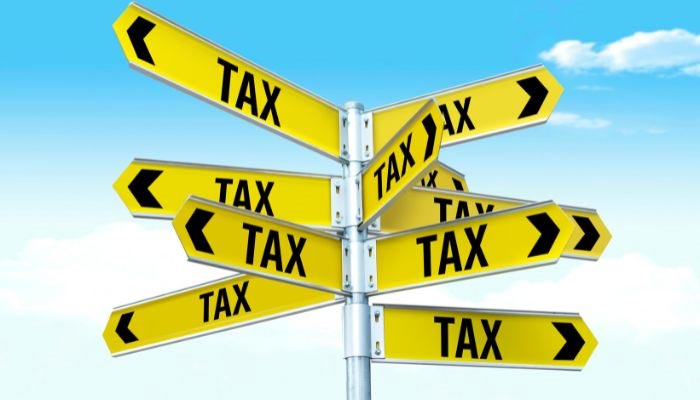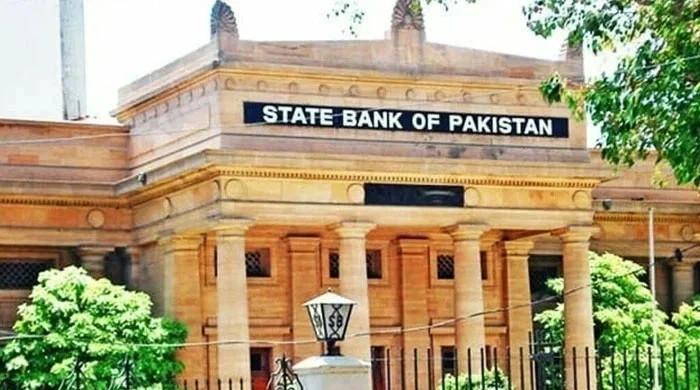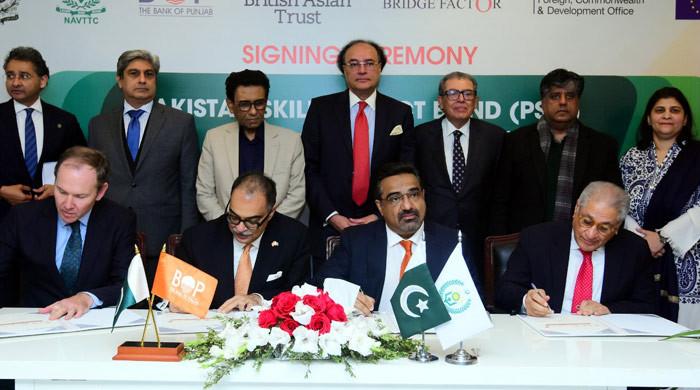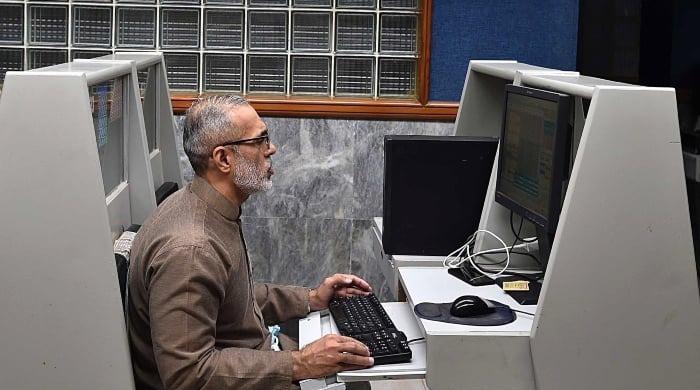Industry players urge govt to revoke super tax in budget
OICCI recommends abolishment of super tax for all sectors and capping corporate tax rate at 29%
June 05, 2023

- OICCI recommends capping the corporate tax rate at 29%.
- It says general rate for minimum tax should be reduced to 0.25%.
- Body says annual income of up to Rs1.2 million be tax-free.
ISLAMABAD: Overseas Investors Chambers of Commerce and Industries (OICCI) has asked the government to abolish super tax and bring trade, services, real estate and agriculture sectors into the tax net in line with their share in the economy.
The OICCI presented its taxation proposals for the 2023-24 budget to the Minister of Finance Ishaq Dar.
The body recommended the abolishment of super tax for all sectors and capping the corporate tax rate at 29%. It suggested that no further increase in the effective tax rate should be made as it is already greater than the regional competitive rates.
The general rate for minimum tax should be reduced to 0.25% and carry forward of minimum tax credit be allowed for at least five years prior to 2022, recommended by the OICCI.
The overseas chamber also recommended the simplification of the withholding tax regime, with existing 200 different tax rates for 24 withholding tax sections, to make it more convenient and business-friendly.
Given the very high inflation impact on the low-income group, the OICCI has also recommended that the annual income of up to Rs1.2 million be tax-free as compared to the current Rs0.6 million annually.
"The economy is currently under stress and the gross domestic product (GDP) growth forecast including for large-scale industries for the immediate near term is negative to marginally positive, which along with super high inflation and interest rates and fast weakening currency, has the potential to substantially dent the profitability of tax paying sectors next year,” said OICCI President Amir Paracha.
The body stressed the urgency for broadening the tax base to boost revenue collection according to the proportionate share of each sector of the economy, especially trade, services, real estate and agriculture.
It has been estimated that with dedicated efforts to collect revenue from all segments of the economy, the tax-to-GDP ratio can be increased to 16% from less than 10% current rate.
Originally published in The News









